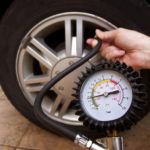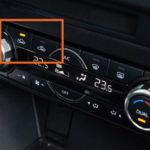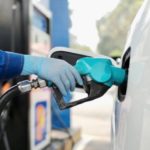Substandard Gasoline
One of the main reasons for excessive fuel consumption is the use of low-quality gasoline. To ensure the safety and performance of your vehicle, it is recommended to fill up at reputable gas stations. Street-side or untrusted sources may provide gasoline that is mixed with impurities, affecting your vehicle’s efficiency.

Underinflated Tires
Ensure your tires are inflated to the recommended pressure. Underinflated tires can cause increased friction with the road, making your vehicle feel sluggish and less responsive, ultimately leading to higher fuel consumption. However, avoid overinflating your tires as this can lead to a bumpy and uncomfortable ride.
Neglecting Oil Changes
Oil plays a crucial role in lubricating, reducing wear and tear, cooling, and protecting your engine. Over time, oil breaks down and loses its effectiveness, leading to increased engine temperature, reduced performance, and higher fuel consumption. Regular oil changes are essential to maintain optimal engine health and fuel efficiency.
Low Coolant Level
Motorcycles typically use one of two common engine cooling methods: forced air cooling or liquid cooling. For liquid-cooled engines, it is important to regularly check and top up the coolant level. Additionally, remember to flush and replace the coolant every two years to ensure optimal performance.
Clogged Air Filter
The air filter plays a vital role in ensuring clean air enters the combustion chamber. A dirty, clogged, or torn air filter can disrupt the ideal air-fuel mixture, leading to an increased amount of gasoline entering the combustion chamber, resulting in higher fuel consumption.
Inefficient Spark Plugs
Spark plugs are essential for igniting the air-fuel mixture in the combustion chamber, and they work continuously while the vehicle is in motion. Old or dirty spark plugs can lead to inefficient ignition, resulting in loss of power, erratic acceleration, and increased fuel consumption due to frequent starting and idling. It is recommended to replace spark plugs every 10,000 km or once a year.
Source: Lao động



































